Arriving in Dakar, we can immediately feel the city’s bustling vibe. We go directly to the harbour, where we get our customs document stamped. Then we search for a place to spend the night, and find a camping ground in the north-west of the city right at the sea, where we are welcomed by our Friend Gee from the Netherlands and his dog Thimba. In the evening we walk to the nearby airport to look for an ATM machine. Half an hour later, we find ourselves in the small booth of a mobile phone seller, staring together with five of his colleagues intriguedly on a small television in the corner, showing tonight’s Champions League match. We are witness to the Africans’ passion for soccer: When Messi scores the first goal, people haste from one shop to another to cheer with everyone around.
The next two nights we spend in a trade-off between security and proximity to the center, on the parking lot of a modern, American style shopping mall. The guards are a bit amazed at first when we ask them for permission, but finally agree on it. Following the main road to the old town, we catch some nice impression of daily life in Dakar: Dozens of sporty people working out at monkey bars and other sport equippment that is installed along the coastline, traditional markets neighboring colourful fishing boats, luxurious condos with access to the beach and a residential area in a Dolce Vita style. The place de l’independence is one of the major squares in the city. Here the European Dakar meets the African. Closely around hotels and restaurants with many foreign guests can be found, as well as small shops and street sellers offering sandwiches and tee. The nearby historical market house bursts with fruit, vegetables, meat and fish.
Our first official meeting takes place in the early evening. We get to know Stéphane, born in Gabon and founder of a ticket portal for various regional events – specifically adapted to the African market. We are lead to the CTIC, an incubator located in Dakar. There, Stéphane tells us how he got the last place with his idea at the local Startup Weekend but then was taken into the CTIC program as the only one. Afterwards we sit together for a tea at the place de l’Independence and talk about life in Sénégal. „The internet will change Africa“ says Stéphane, and underlines his thesis with the example of paying bills in Sénégal: Every month people have to drive with the bus to the department, where they have to wait half a day to pay for their electricity – economically a huge loss.
After relocating to a guarded parking spot opposite to a building site directly at the ocean, we have another appointment the next day. This time we meet Yann, director of the CTIC, as well as Eva, the PR manager. We learn that their incubator is the only one in whole West Africa, but further locations are being planned. Funded by the GIZ, the concept of the program is to put together a startup portfolio for big companies to invest, since the trust in single innovative projects in Sénégal still is very low. Also we get introduced to Babacar and his cofounder, who together started the website Concree. Motivated by the fact, that in networks like Facebook everybody knows everyone, but nobody really is familiar with the know how of his contacts, they aim to connect young people with ideas on exactly this basis. Also on their site they provide tools to create a business model as well as legal information for starting a company.
Subsequently we have an egg baguette – „Mburu Aknen“ in local language – at our regular place: An orange painted bus run by a hand full of nice and cheerful guys. In our opinion they sell the best sandwich in town. On the last day we take a goodbye photo including Balde, who is running the business. Before departing towards south we visit some touristic destinations: The „Slave Island“ Gorée, former place for shipping black slaves, where we a guide depicts the island’s terrifying history, the most western point of the African continent in Dakar, as well as the Sunday mass in a benedictine monastery in Ker Moussa, which thrills us with its cheerfullness and livelyness.
Then we approach Gambia, a country completely surrounded by Sénégal along the Gambia River. With only few stops we arrive the border at Farafenni. Without major troubles we find ourselves at the other side. At the following ferry cruise across the river we have incredible luck. For several minutes it looks like we are the first car not fitting onto the ferry anymore. The prospect of another waiting time of unknown length lets us shudder. Until suddenly a small gap opens and allows us to enter the ferry as the definitely last car. The following days at „Sukuta Camping“ close to Banjul we use for administrative stuff and to catch a breath.
Our next destination: Guinea-Bissau. In the past the small country gained a dubious reputation, after its government opened the airports to a columbian drug trust as a spot for transshipping cocaine to Europe. Also, after a military coup in 2012, the country de facto is a military dictatorship. As we cross the border we don’t feel anything of this – travel guides consider the country as one oft he safest in whole Africa. People are laid-back, only the Portugese language causes us some problems in communicating. Nevertheless, with help of negligible Spanish knowledge as well as with sign language the border formalities take place without problems.
The road towards the capital Bissau leads us through sleepy villages and intrusive police controls. As we arrive, we park in the yard of restaurant „Almagui“. It is run by a German, who als rents small lodges and lets us camp on his property. We pay a fair price, particularly since we later learn that staying in Bissau usually is very expensive. There is a very limited number of hotels, and the employees of foreign NGOs push up the prices. We are happy about our comfortable accomodation and look forward exitedly to the popular carnival festivities in the upcoming days – the atmosphere on the streets in Bissau already is distinctly cheerful…
.

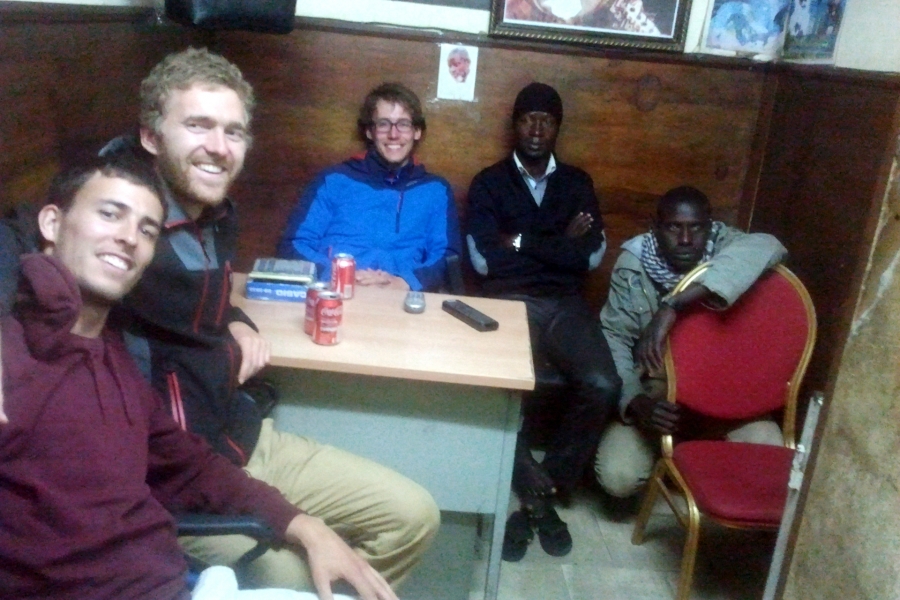
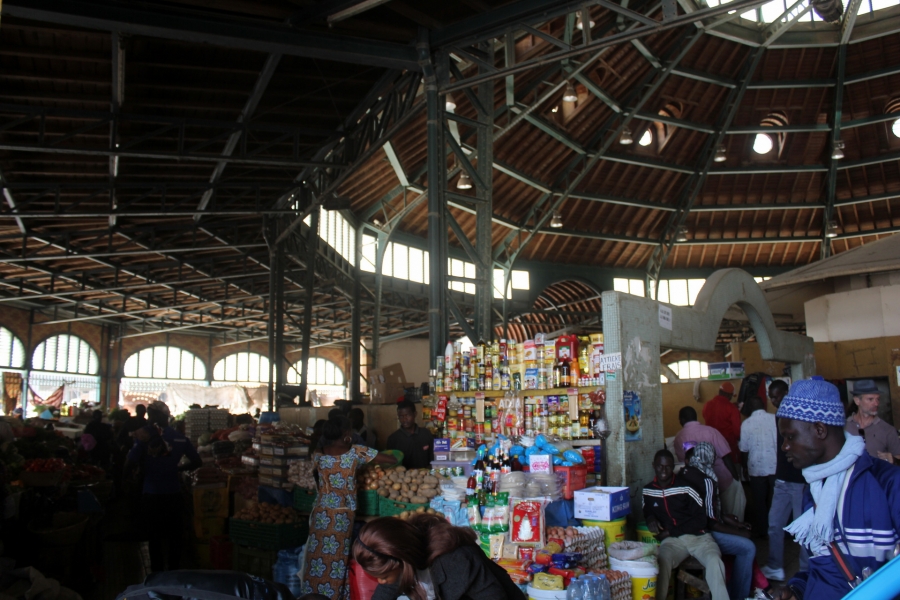
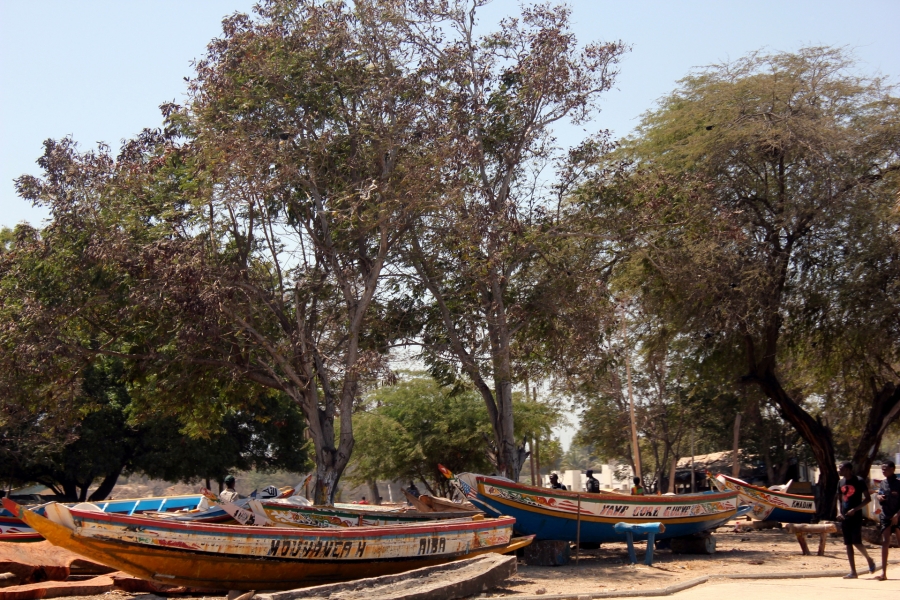
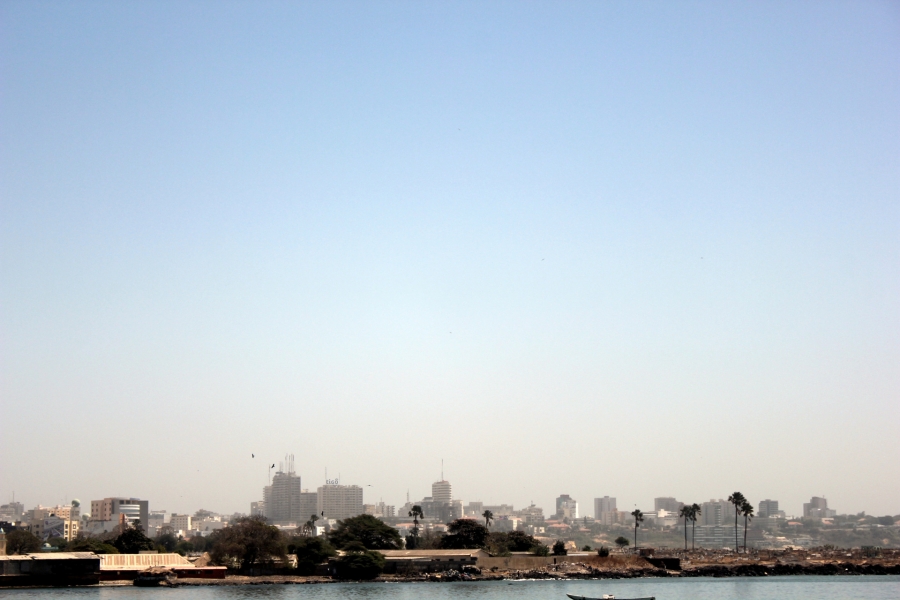
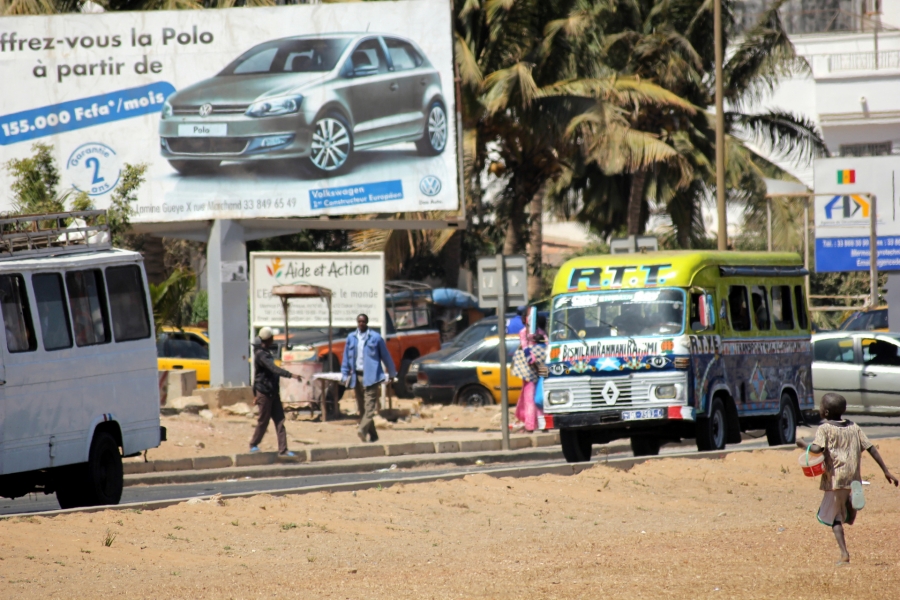
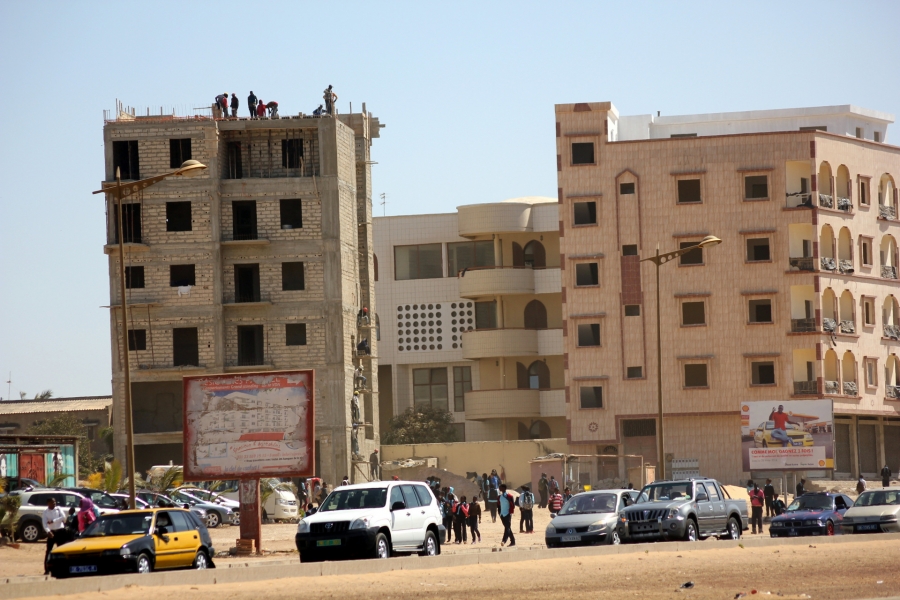
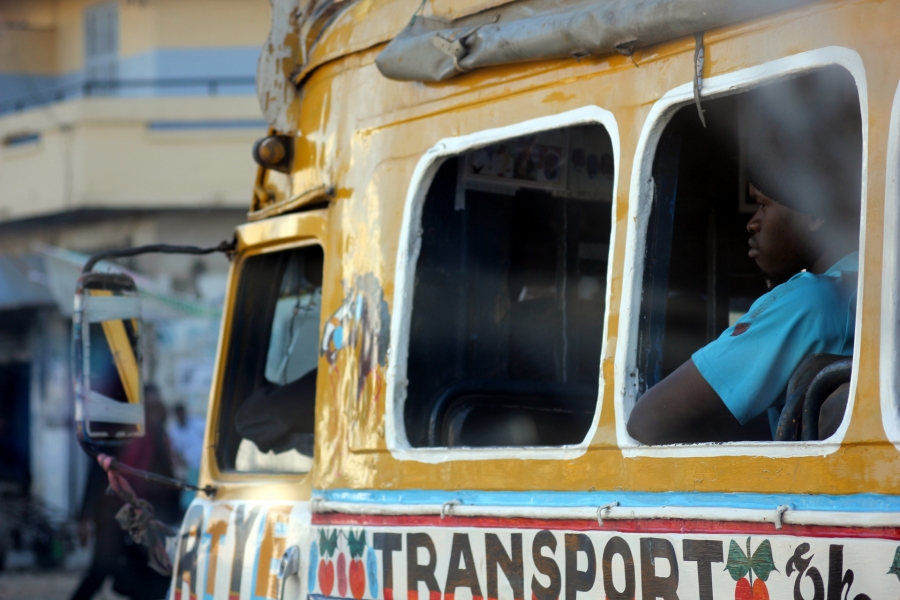
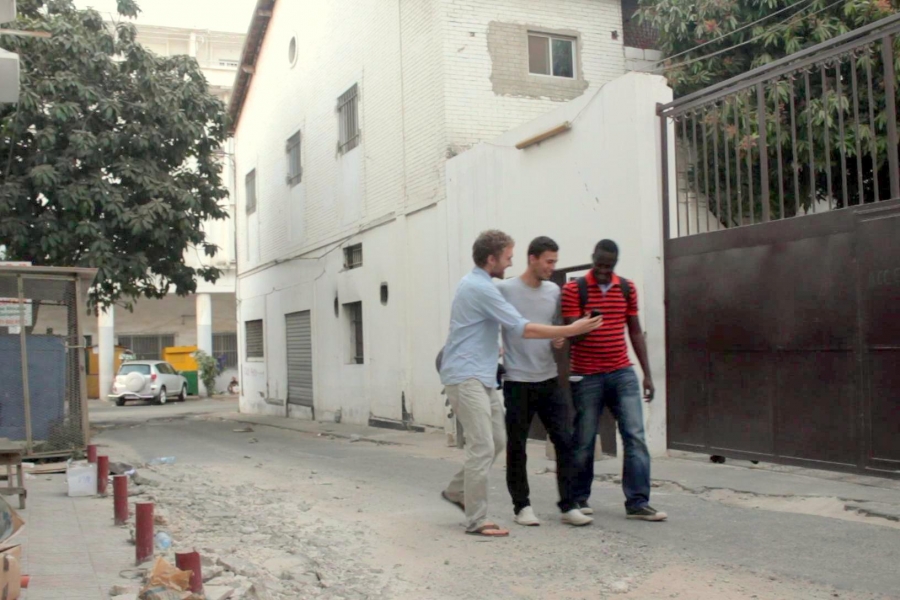
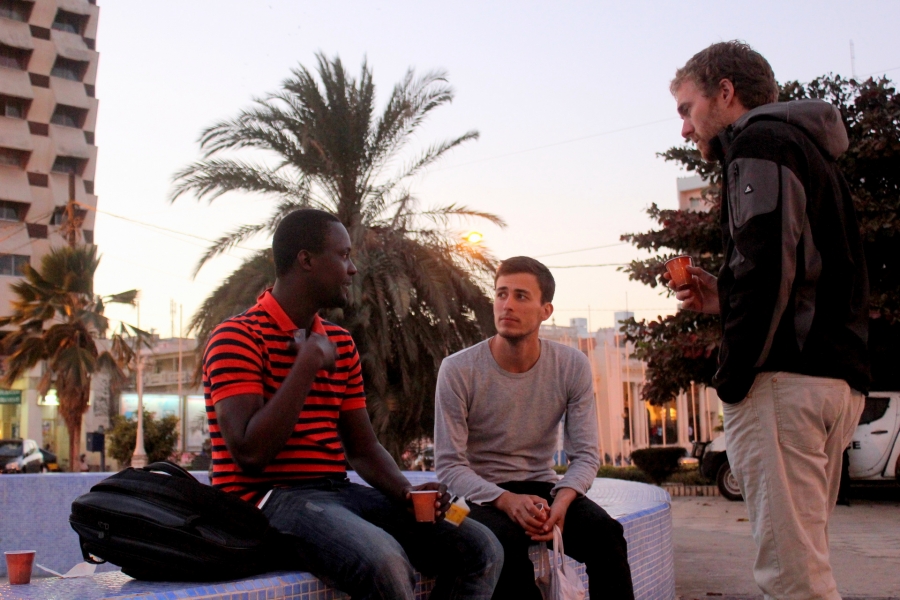
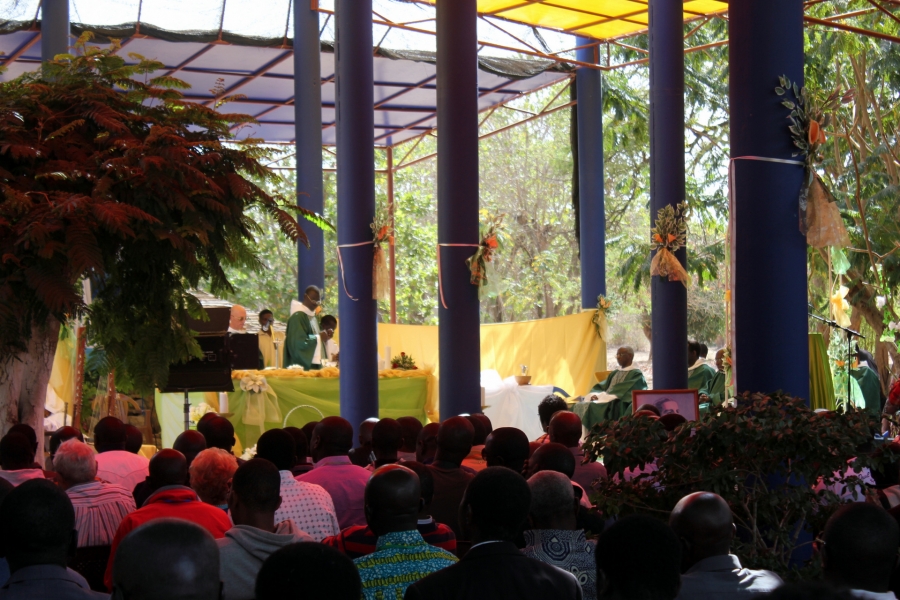
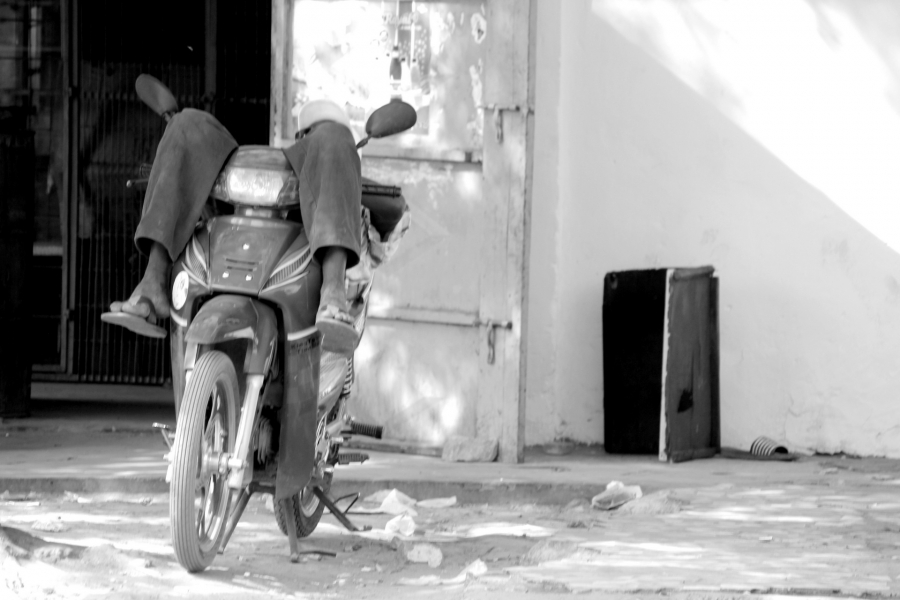
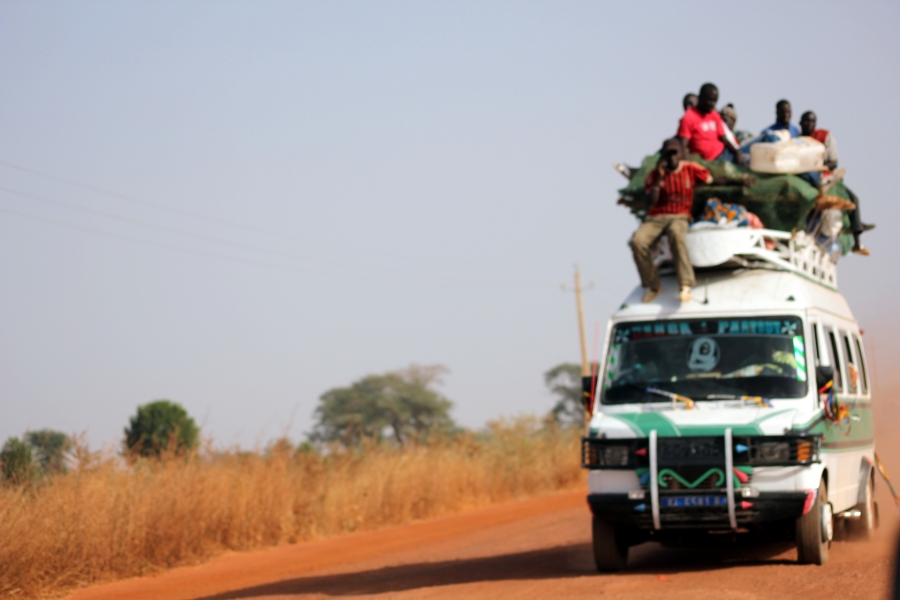
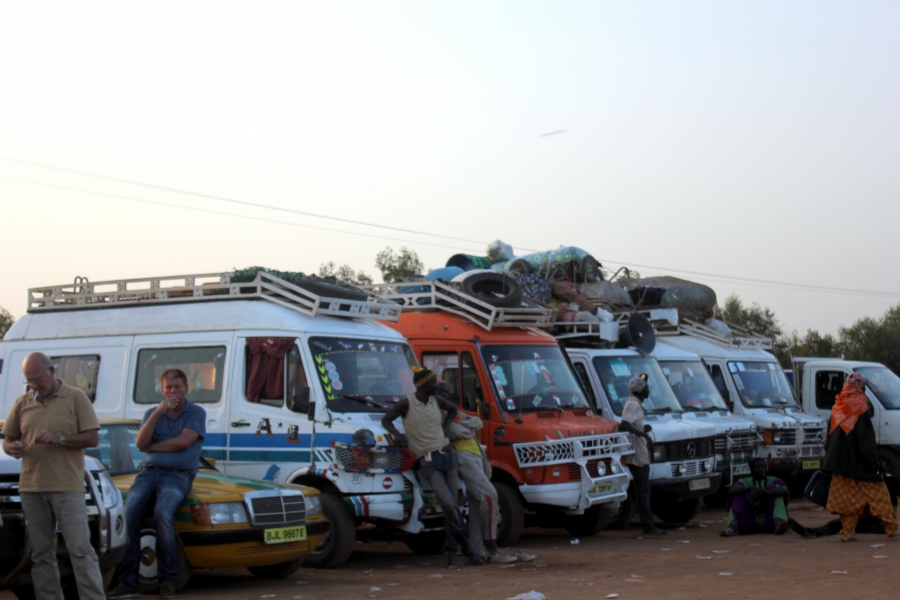
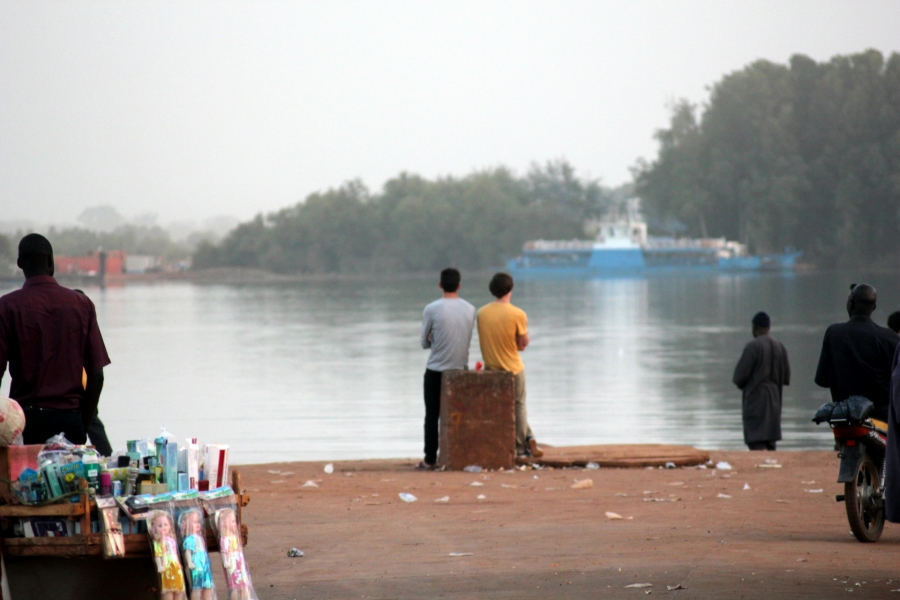
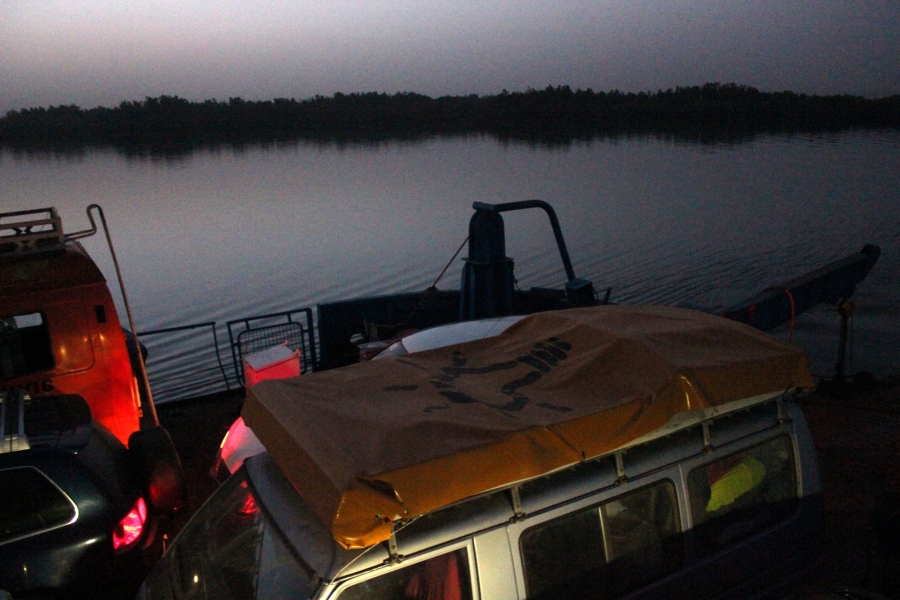
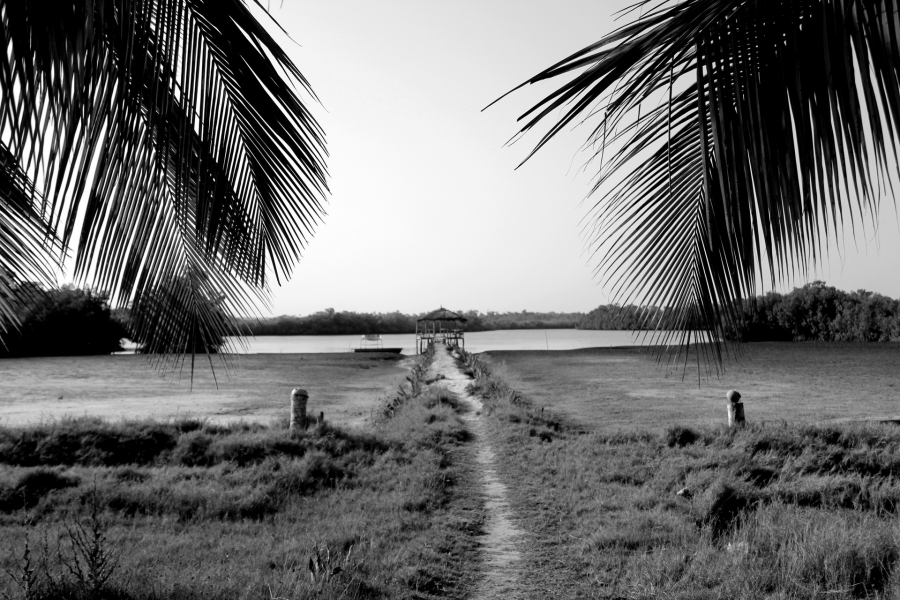
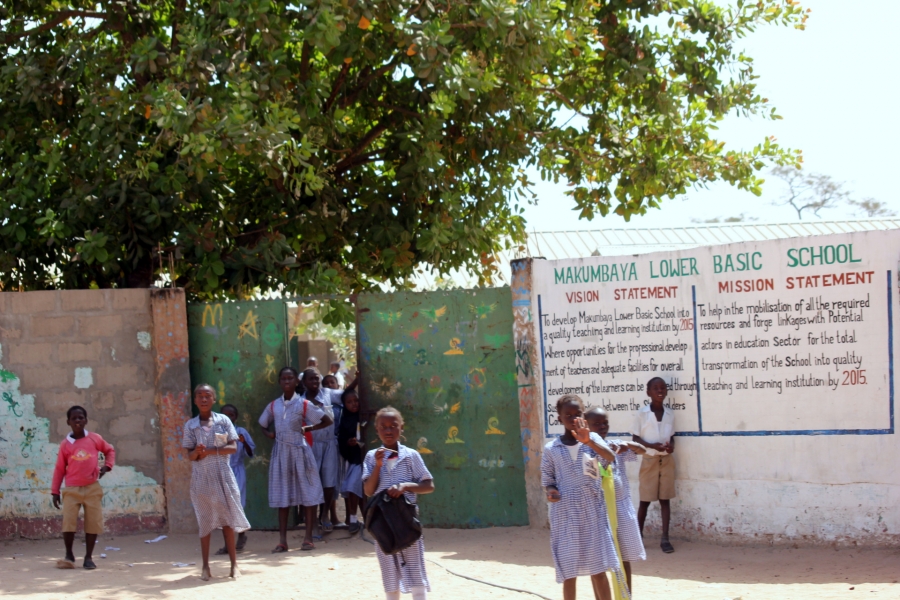
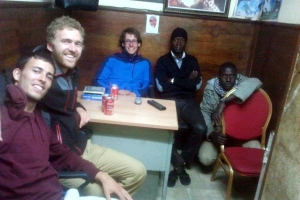
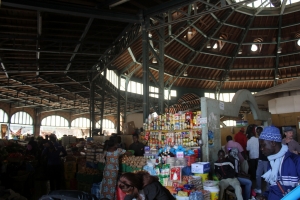
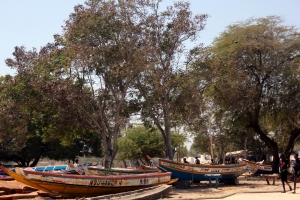
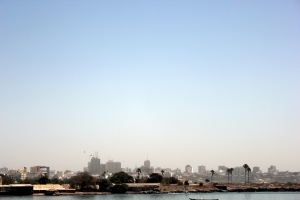
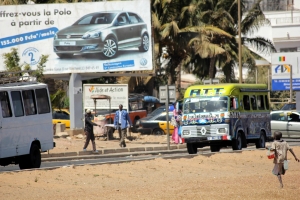
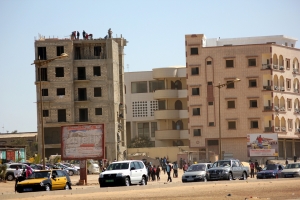
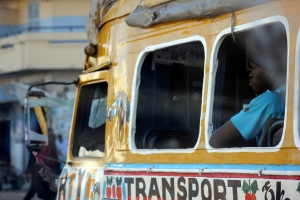
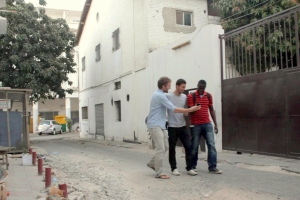
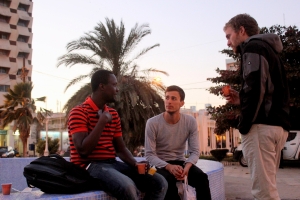
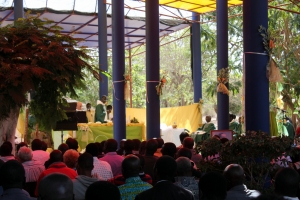
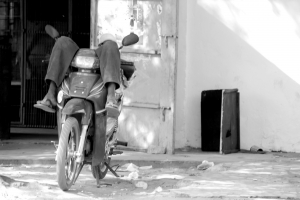
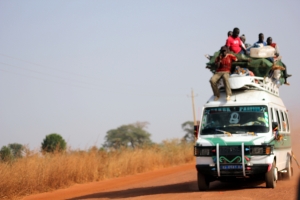
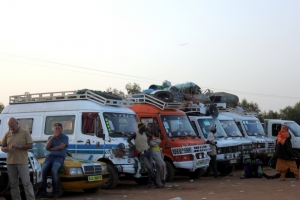
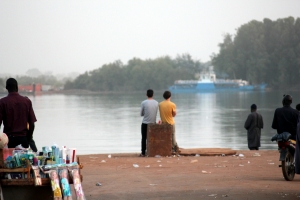
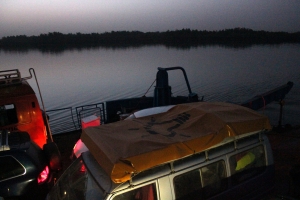
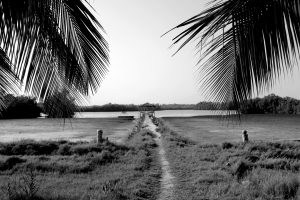
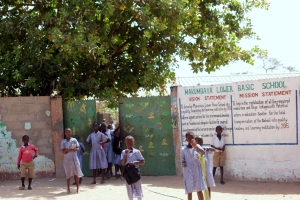

















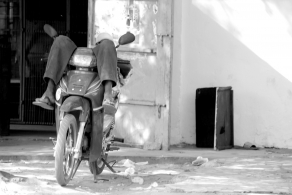






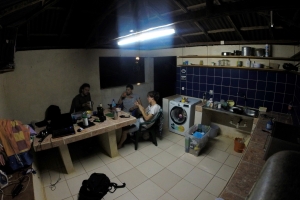
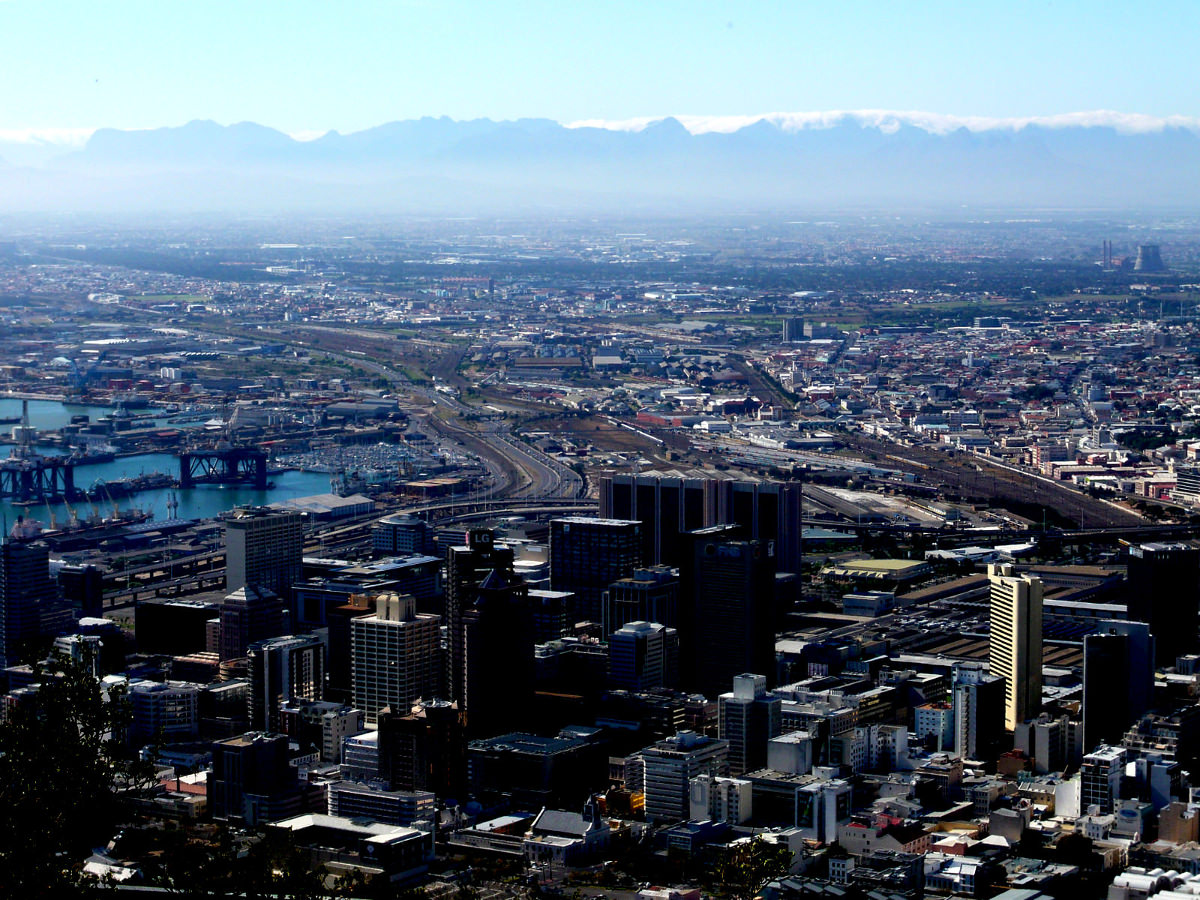
Ihr schreibt sehr farbenfroh und empathisch, super zu lesen. Gerne mehr davon. Weiterhin good luck. Liebe Grüsse aus der Heimat. Wie habt ihr das inzwischen mit dem Schlafen und den Füßen geregelt ;-))))))) Achim